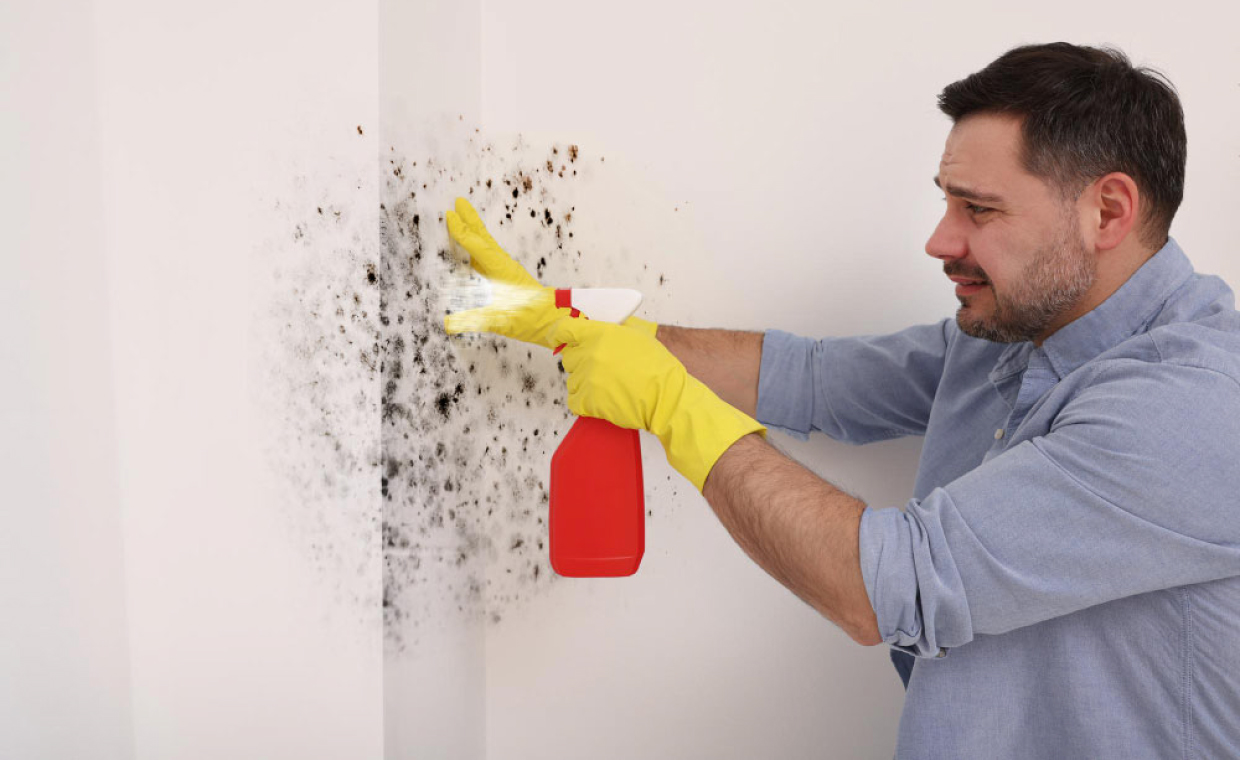
Table of Contents
Quick Summary
- Septic tank maintenance is essential for homes without municipal sewer lines, especially in many parts of India.
- A well-cared system can last decades and prevent leaks, clogs, and costly repairs.
- Regular inspections help detect leaks early, especially during tank pumping.
- Leach fields should be checked for flooding, mushy soil, or slow drains that signal blockages.
- It is necessity to pump the septic tank in every 2-5 years. Regular pumping of the tank keeps it running smoothly and prevents the problem of overflow.
- Reducing water use and limiting solids in drains lowers strain on the system.
- Using bacteria additives or treatment pods helps break down waste effectively.
- Leach fields should be marked, protected from heavy loads, and kept free of deep-rooted plants.
- Keeping maintenance records helps in planning future maintenance schedule, cost savings, and boosts home resale value.
Septic tank maintenance is a vital part of extending a sewage system’s lifespan. Most homes are constructed with a septic tank and we all know the inevitability of the households on these sewage tanks. About 20 percent of households in India don’t depend on the municipal wastewater system. It is not that they opt to do the septic tank on their own.
But unfortunately, most parts of India don’t have the privilege of having sewer lines in their town or village. Instead, they opt for the septic system to treat water. With a septic system in your home, it is vital to know the regular septic tank maintenance tasks you should do to avoid clogs and leaks and extend its lifespan.
Do you want to know how to maintain a septic system? Keep reading until the end of the article to find the solution you are looking for. Before we go over the septic tank maintenance DIY tips, let us know what a septic tank is.

What is a Septic Tank?
Well, it’s an underground chamber made of plastic, concrete, or fiberglass through which domestic sewage flows for essential treatment. It works best in areas where sewers haven’t been installed, and soil is relatively porous as well as disposal of sewage by percolation into the ground is possible. The most important point here is that when you install a septic tank system, you must know how to clean a septic tank too.
How To Maintain Septic Tank System?
When a septic tank is maintained correctly, it can serve you for the span of 15 to 40 years, while the leach field can last for more than 50 years. To keep it functional and healthy, ensure that you follow these eight most essential septic tank maintenance tips:
01. Inspect the Whole System for Leaks
First step of the septic tank maintenance is to conduct diligent inspection at regular basis. Leakage of the septic tank releases strong sewage odours.
The tank is underground, so it will be challenging to detect any leaks. Therefore, when the septic tank is pumped, that is the best time to check for leaks.
02. Check the Leach Field For Clogs

Even after limiting the solid waste and inspecting the septic tank, the leach field can still get clogged. How? During rainy season, the excess water may flood the system.
So, during rainy weather, it is advisable to move around the leach field to look for standing water and mushy ground as they indicate a clogged leach field. Also, slow-running drains and backed-up plumbing are some of the red flags.
03. Pump the Septic Tank Regularly

Get your septic tank properly pumped. Having your septic tank pumped is the most important task you need to do every two to five years. However, it would depend on the number of people in your home, the size of your septic tank, and the waste type that enters your tank.
Having your septic tank pumped would cost you around $200 to $600, depending on the location and size of the tank.
04. Limit Household Waste and Water Usage
The amount and the content you put down the drain matter a lot in maintaining your septic system. Excess liquid waste entering the septic tank can overfill it, while the solid waste quickly piles up, increasing the system pumping frequency.
To avoid this, you should divert the water from the roof from the leach field and, if possible, install water-saving appliances. For the solids, ensure you dump food wastes and fats into a compost pile or recycle food waste instead of disposing them of in your sink.
05. Use a Bacteria Additive
When waste from the home enters the septic tank, it’s filtered by weight, letting the solid waste sink to the tank’s bottom. The liquid is then released to the leach field, where the soil filters it.
The remaining waste in the tank is then broken down gradually by the bacteria, which helps keep the septic system clean and functional. So, it is recommended to use bacteria additive that breaks unnatural substances down like soaps and detergents which might have entered your septic system. When soaps and detergents enter the septic system, they kill the naturally occurring and the anomaly may disrupt your septic system to function correctly.
Instead of bacteria additive, septic tank treatment (i.e. Rid-X Septic Tank Treatment Enzyme, Green Gobbler SEPTIC SAVER Treatment Pods with Bacteria For Healthy Septic System, Septic Tank Treatment – Supply of Dissolvable Easy Flush Live Bacteria Packets etc.) also work best for its maintenance.
06. Mark and Maintain the Leach Field

One of the sensitive parts of a septic tank is the leach field. It always needs to be protected. It consists of numerous perforated pipes which extend the whole leach field length. And since the leach field area can be strolled on without any issue, the weight from trailers and cars can damage the buried pipes.
So, it’s important to mark off the leach field clearly and alert any guest to avoid passing on it with heavy loads. You should also check the drainage and plant life around the leach field. Any bushes or trees growing around that area should be removed to avoid the roots from growing into the pipes.
07. Install an Effluent Filter

You need to install an effluent filter to avoid the formation of clogs that often lead to septic backups. By doing so, you can increase the leach field’s lifespan. The filter is installed on the septic tank outlet and grease trap to create a barrier that keeps out solids from the dispersal system of the leach field.
The effluent filter can serve you for about four to six years before cleaning it. And if possible, it should be cleaned simultaneously as the septic tank is pumped to reduce maintenance costs and repeated visits of the cleaning professionals.
08. Keep accurate Maintenance Records

You should always keep an accurate record of any maintenance done on the system. The record would help you reference the information you’d need to decide the frequency and amount of bacteria additives you would put into the septic system.
Also, keeping clear, detailed, and concise maintenance records can be of great help when you decide to sell your home to a prospective buyer. Septic systems scare off some people; however, your home would be more appealing with the septic maintenance record than a similar property whose history of a septic system is unknown.
How Often To Clean Septic Tank System?
According to U.S. Environmental Protection Agency – EPA, the house septic systems should be cleaned at least every three years by a septic tank servicing professional, and septic tanks are typically pumped every three to five years.
Why is it Important to Maintain Your Septic Tank?
Septic tank maintenance comes with a lot of benefits, including;
01. Staying Healthy
Wastewater is full of contaminants and pollutants, which can pose a severe risk to your family’s health. However, your septic system plays a vital role in keeping your water and home clean. It safely disposes of all wastewaters you produce every day.
But, if you don’t regularly maintain your septic system, you’d make it lose its ability to manage the contaminants reliably. And this would cause sewage water to come up back through the drains, posing your family at risk of contracting diseases.
02. Saving Money
The regular fees for septic tanks range from $250 to $500 each for three to five years. On the other hand, the cost of replacing or repairing a failed septic system would cost you not less than $7000 without even considering the cost of other damages a failed septic tank might cause.
Consequently, scheduling regular maintenance for your septic system is the most eco-effective way by far. And failing to maintain it makes it work ineffectively, resulting in other plumbing issues that would cost you money.
Although septic tank maintenance would cost some cash now, it would save you more money in the long run.
03. Protect the Environment
Almost three billion gallons of wastewater are discarded daily below the ground’s surface. And if your septic system is malfunctioning, it releases toxic chemicals, viruses, and bacteria in the wastewater to the local waterways.
The wastewater contaminates the groundwater, posing dangers to the environment and drinking water. To avoid all these issues, you should maintain your septic system to save your family, your entire community, and also your wallet.
Summing Up
Now that you know how to care for a septic tank and the basic know-how of septic tank maintenance, try to take the best care of the septic system in your home. This practice will sprout multiple benefits like increasing your property value, improving the system’s efficiency, and lowering the overall cost.
Next, the maintenance series (i.e. Swimming Pool Maintenance, Solar Panels Maintenance, Trees Maintenance etc.) continues with a few more articles that you might find interesting. For additional information, click the following link:
A Guideline to Maintain and Clean Your Swimming Pool
How to Maintain Your Solar Panels at Home?
Lawn Care 101: 7 Tips for Maintaining Trees!
FAQs on Septic Tank Maintenance
1. How Often Should a Septic Tank Be Cleaned?
A septic tank should generally be cleaned every three to five years, depending on the tank size and household usage. Regular cleaning prevents backups, protects the leach field, and keeps the system running efficiently without unexpected repair expenses.
2. What Are the Signs of a Failing Septic System?
Slow drains, gurgling sounds, foul odours, standing water near the leach field, and frequent clogs usually indicate septic issues. These symptoms suggest that the tank or leach field is overloaded or blocked, and that it needs immediate inspection to prevent the problem from worsening.
3. What Should You Not Drain into a Septic Tank?
You should refrain from draining items like cooking oils, sanitary products, plastics, chemicals, paints, and excessive detergents into a septic tank. These materials disrupt bacterial activity, create blockages, and increase pumping frequency by allowing solids to accumulate rapidly.
4. Why is the Leach Field Important for a Septic System?
The leach field safely filters wastewater into the soil after solids settle in the tank. It prevents contamination, supports proper drainage, and ensures the system works efficiently. Any damage or clog in this area often leads to costly repairs and backups.
5. Do Septic Tank Additives Really Help?
Yes, it is helpful in multiple ways. For instance, bacterial additives help break down waste, especially when detergents and cleaning chemicals reduce natural bacterial levels. They support smoother system operation, minimise odours, and slow sludge buildup, reducing the chances of clogs and extending the interval between pumping cycles.
Author Bio
Jennifer Kiminza – Jennifer Kiminza is a content writer and content marketing professional at Hub Spot, an inbound marketing and sales platform that helps companies attract visitors, convert leads, and close customers. Previously, Jennifer worked as a marketing manager for a tech software startup. She graduated with honors from Nairobi University with a dual degree in Business Administration and Creative Writing.
References
U.S. Environmental Protection Agency – EPA. (2021) How to Care for Your Septic System. [Online] Available from: https://www.epa.gov/septic/how-care-your-septic-system






























